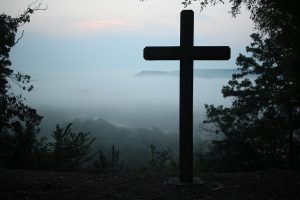Religion in American has been a source of great debate and discussion since the country’s origin. Such arguments become wild when they concern religious freedom and the best possible relationship amongst the state and the church. Contentions on these inquiries are frequently confined the intended goals of the founders, even though they have twisted perspectives. There is a lot of proof to justify that the founders of the state were affected by Christian thoughts.
 Common wrong answers
Common wrong answers
Mainstream thoughts and self, class, or state interests guided many American authors. Researchers do not entirely deny that the founders were religious, yet battled that they were supportive of the statement that God does not meddle in the issues of men and countries.
Correspondingly, College of Chicago law teacher Geoffrey Stone ascertains that deistic convictions assumed a focal part in the confining of the American republic. He added that the establishing era saw the connection between religion and the government, through an Edification lens that was profoundly doubtful of universal Christianity. Practically, same cases are made by Steven Keillor, Edwin Gaustad, David Holmes, Steven Waldman, Brooke Allen, Richard Hughes and numerous others.
Declaring that the Organizers were deists, these creators routinely fight that they relinquished their predecessors’ narrow way to deal with church-state relations, and grasped religious freedom. They regularly explained that some Organizers thought power ought to bolster religion. They contended that this was insignificant as Jefferson’s and Madison’s conviction ought to be a high mass of detachment amongst chapel and state, built into the Constitution and strengthened by the Principal of Correction.
What Precisely Would a Christian Establishing Resemble?
Keeping in mind the end goal is appropriately answering whether America has a Christian establishing, we first need to comprehend it. To begin with, first considering what would precisely constitute a Christian Establishing? One possibility is that the Originators distinguished themselves as Christians. In 1776, each European American, except for an average of 2,500 Jews, recognized themselves as a Christians. Also, around 98 percent of the pioneers were Protestants, with the extra 1.9% being Roman Catholics.
However, the truth is not fascinating. These individuals may have been unworthy Christians fundamentally affected by non-Christian thoughts, or, they may have been Christians reluctantly endeavoring to make a joint political request.
What Constitutes America’s Establishing?
Some creators contend that the nation did not start in 1776, but rather more than one hundred fifty years earlier. Three noteworthy potential outcomes may help us in establishing the birth of the nation; the foundation of provincial governments in the seventeenth century, America’s break up with England in the 1770s and the production of another sacred request in the 1780s and 1790s.
The Originators on State and Church
In the 1947 Incomparable Court choice of Everson V. leading body of Training, Equity Wiley Rutledge declared that no procurement of the Constitution was firmly attached to or given substance by its creation history, then the religious statement of the Main Correction. It is the next refined item and brief summation of that history. Just like other legal scholars and scholastics since, he continued to contend that the Originators planned the Main Change to make a strict boundary between the state and the church. He entirely depended on upon proclamations by Thomas Jefferson and James Madison as confirmation.
Conclusions
So did America have a Christian Establishing? History is convoluted, and we ought to dependably be suspicious of straightforward responses to troublesome inquiries. As we have seen, there is little valuable confirmation that the Originators were deists. Then again, they distinguished themselves as Christians affected in vital routes by Christian thoughts. In spite of the fact that Christianity changed the organizers, they didn’t outline an established request just for kindred adherents. They expressly precluded religious tests for government workplaces and were focused on the suggestion that all men and ladies ought to be allowed to love or not to love God depending on their instincts.
